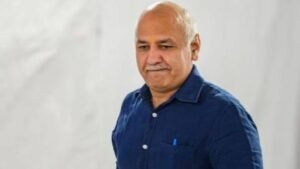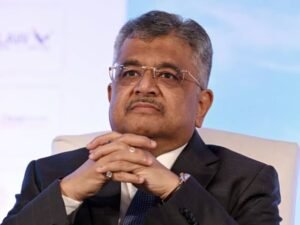Amidst the ongoing General Elections, the Delhi CM failed to bargain for his freedom in the Supreme Court.
In May 7 hearing, the Supreme Court deferred the bail plea filed by Arvind Kejriwal, after a day long hearing.
Earlier last week, the SC had encouraged the Enforcement Directorate to come prepared for the hearing adding that bail may be granted or may not be. ED was asked to assess potential bail conditions and whether Kejriwal should de facto continue to serve as the Delhi CM.
Arvind Kejriwal was arrested on March 21 in the Delhi excise policy case, a few days after the Model Code of Conduct came into force, and sent to Tihar Jail under judicial custody. Later, the SC issued a notice to ED against Kejriwal’s arrest on April 15. A couple days ago, the Delhi HC had upheld his arrest citing no illegality and “little option” left with ED after he repeatedly snubbed their investigation call.
The Enforcement Directorate argued that bail for a “criminal” politician to campaign was hardly a fundamental right — adding that it’s a luxury for “real aam aadmi.”
The day-long hearing ended up without an order. A Bench of Justices Sanjiv Khanna and Dipankar Datta said it may tentatively list the case on May 9, as the next week would be a tight squeeze.
Manish Sisodia and K Kavitha’s judicial custodies have also been extended till May 15 and May 14 respectively.

Kejriwal’s bail might set up a wrong Precedent
While the sitting jailed CM of Delhi is constant in his fight for an interim bail in the name of conducting campaigns, the justices are concerned about the “cascading effect” it would create in the country.
Senior advocate A.M. Singhvi, appearing for Mr. Kejriwal, pleaded that such a stricture would be “humiliating” for a sitting Chief Minister. The excise policy was chucked long ago and “there was no scandal”, he pointed out.
Justice Datta said that the court was considering interim bail only on account of the election. “Otherwise, we would have reserved our judgment on your petition seeking to quash your arrest and pronounced our judgment after summer vacations,” Justice Datta addressed Mr. Singhvi.

The Solicitor General of India, Tushar Mehta along with Additional Solicitor General S.V. Raju was quick to respond in favor of ED. He argued that the court would send wrong messages to the citizens, adding that “heavens would not fall if he(Kejriwal) did not campaign.” But keeping in mind that Arvind Kejriwal was an elected Chief Minister and not a habitual offender, bail could be granted under “exceptional circumstances.”, said Justice Khanna.
The subject of “exceptional circumstances” raised a question on the treatment of jailed politicians as a separate class — on the ground of canvassing votes.
“But how is an elected Chief Minister any different from the real aam aadmi, the kirana owner or the agriculturist, the barber or the mazdoor– The message must not go out that all are equal but some are more equal,” Mr. Mehta objected.
To this Justice Khanna clarified saying that general elections came only once in five years unlike the harvesting season, which arrived annually.
He emphasized that “And we certainly do not want politicians accused of crimes to be treated as a separate class.”
Justice Khanna also noted the uncanny co-incidence of the arrest timing with the forthcoming general election when according to ED’s argument, “his name had cropped up way back in February-March 2023.”
Mr Singhvi representing the Delhi CM, questioned if an interim bail to the CM would enhance any kind of threat on the society. “Since when did not responding to ED summons become a ground for arrest?”, he added.











